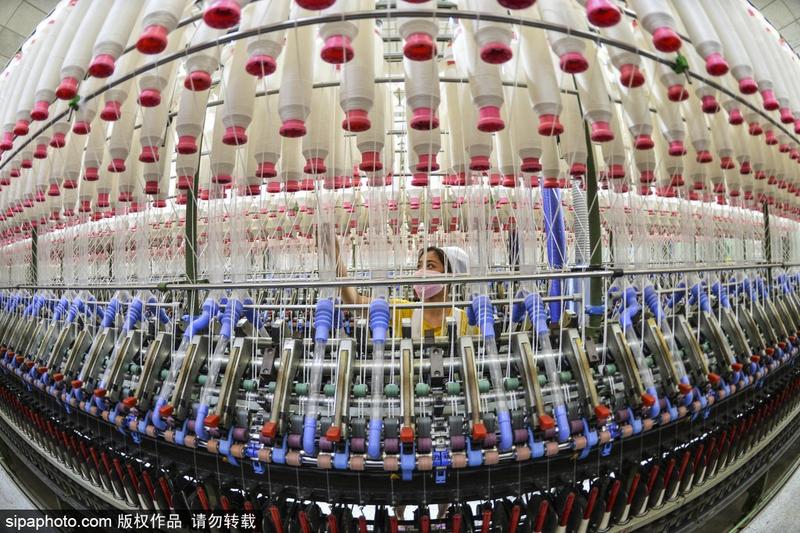 A textile company resumes work in Zaozhuang, East China's Shandong province, on Feb 20, 2020. (PHOTO / SIPAPHOTO.COM)
A textile company resumes work in Zaozhuang, East China's Shandong province, on Feb 20, 2020. (PHOTO / SIPAPHOTO.COM)
China will fine-tune its coordination mechanisms to maintain stability in the six key areas-employment, finance, foreign trade, foreign investment, domestic investment, and market expectations-to more effectively manage the impact of the virus outbreak and promote sound economic and social development.
The move was decided at the State Council's executive meeting chaired by Premier Li Keqiang on Tuesday.
The coordination mechanisms for stable performance in the six key areas have played an important role in pooling interagency synergy to keep economic development within the proper range
Li Keqiang, Premier
"Since its launch, the coordination mechanisms for stable performance in the six key areas have played an important role in pooling interagency synergy to keep economic development within the proper range. This year we may face even greater challenges, hence the need to steer the functions of the mechanisms toward more targeted efforts for stability in these areas," Li said.
Interagency coordination on macroeconomic policies, foreign trade and investment and financial stability must be fully leveraged to formulate strong and effective response measures to boost the internal dynamism of the economy and keep major economic indicators within the proper range for the whole year, participants decided at the Tuesday meeting.
"One important task facing us on the economic front is to address the impact brought by the epidemic. Maintaining stability in the six key areas will help keep capital flowing and the industrial chain running, and contribute to economic performance within the proper range," Li said.
The meeting also underscored the need for restarting business activity in the logistics sector in transportation, shipment and express delivery services. It called for following the region-specific, tiered and targeted approach to encourage businesses to resume operations in an orderly way. Any arbitrary requirements on the resumption of work must be lifted. Face masks and other needed protective gear should be made available through coordination.
ALSO READ: Epidemic's impact on economy to be 'manageable'
"A major hurdle in outbreak response and production resumption lies in logistics. Undue restrictions shall be promptly removed. Otherwise, the operation of industrial and supply chains will both be hampered," Li said.
Subnational authorities are required to provide equal convenience for both postal and courier service providers under all types of ownership and clear obstacles for bringing delivery services to villages and communities.
Further tax and fee cuts will be made for logistics-related businesses. Insurance companies will be encouraged to lower or exempt premiums for commercial vehicles, ships and aircraft whose operations are suspended during the outbreak. That can be done through extension of the insurance period or deduction of policy renewal fees.
READ MORE: Economy can stage solid recovery after Q1
"We must enhance preparedness in terms of policies and projects, do everything we can to keep economic development and employment stable, and work hard to meet this year's targets for economic and social development," Li said.


